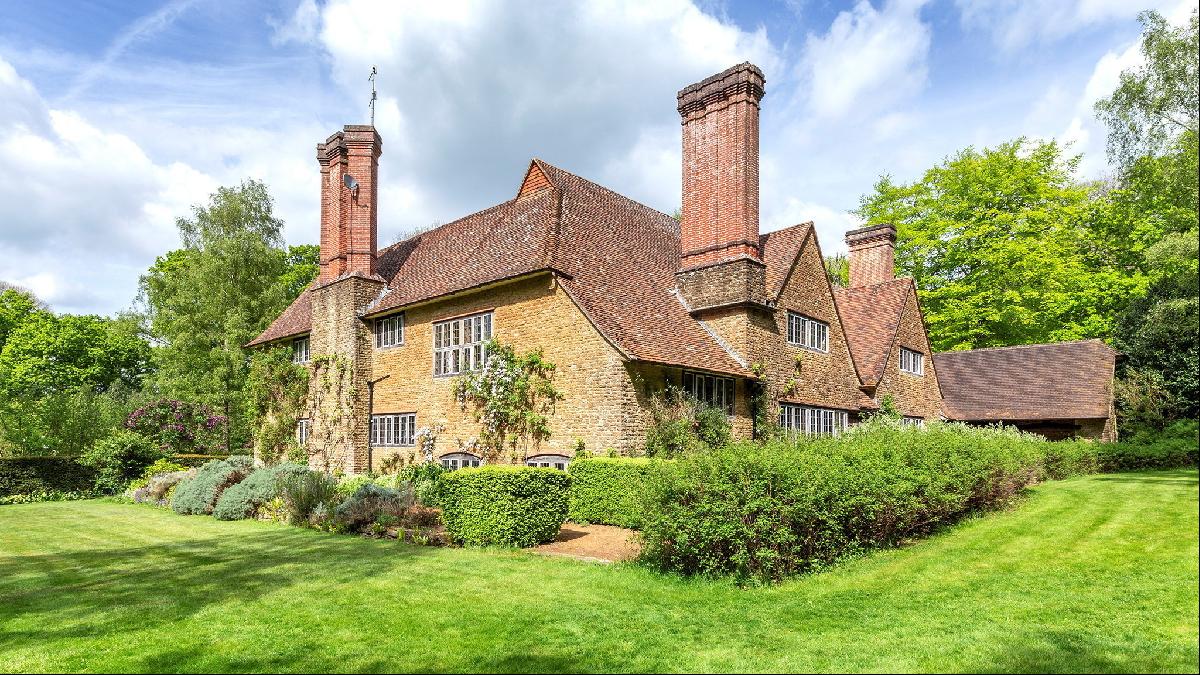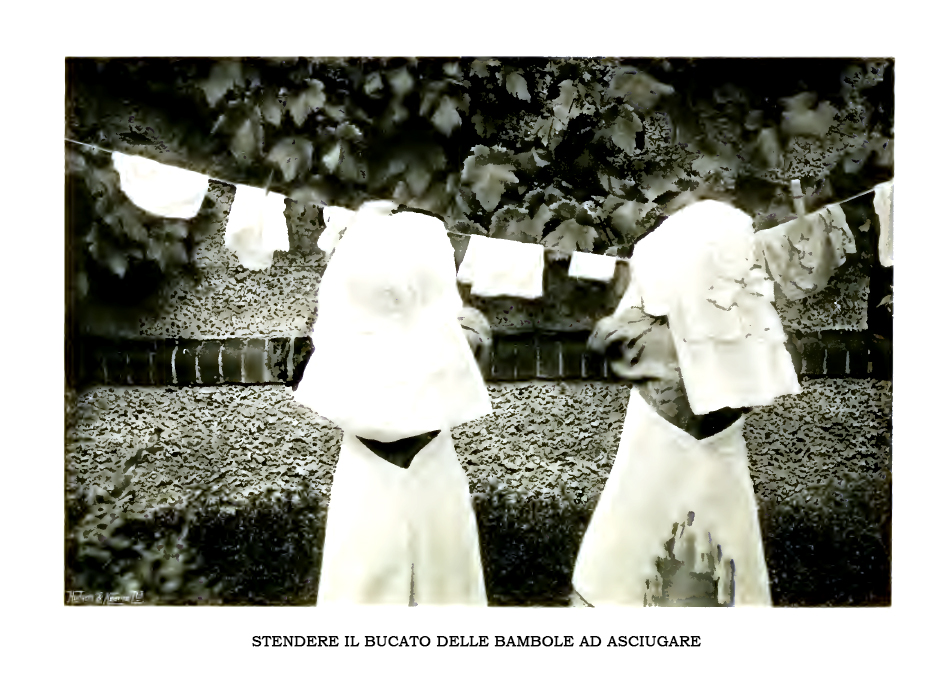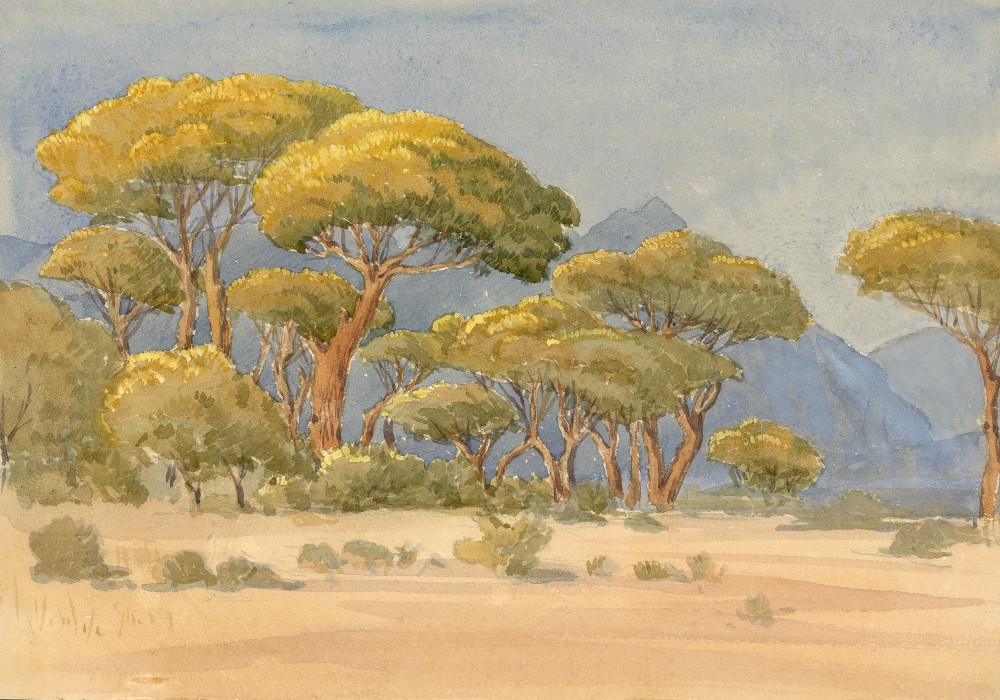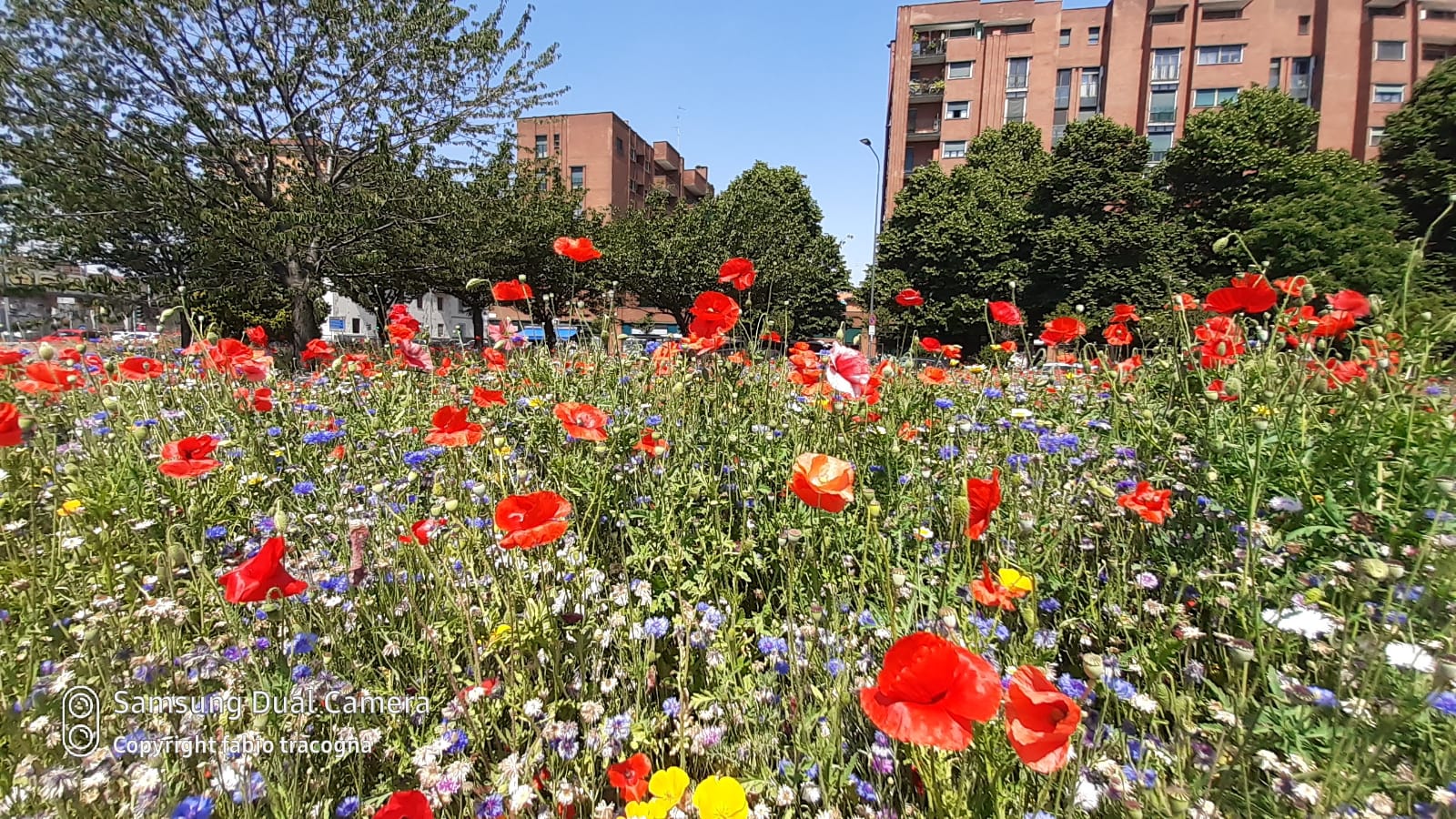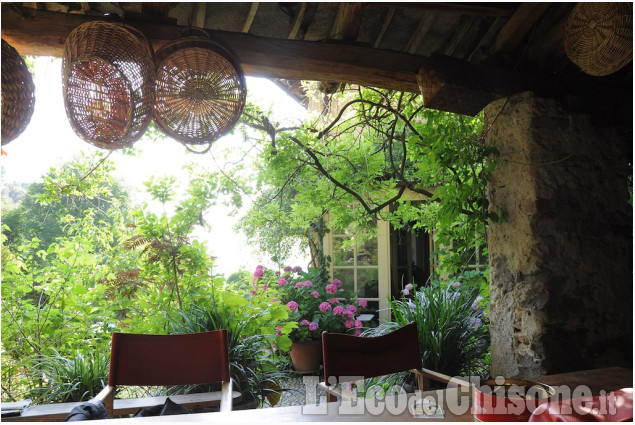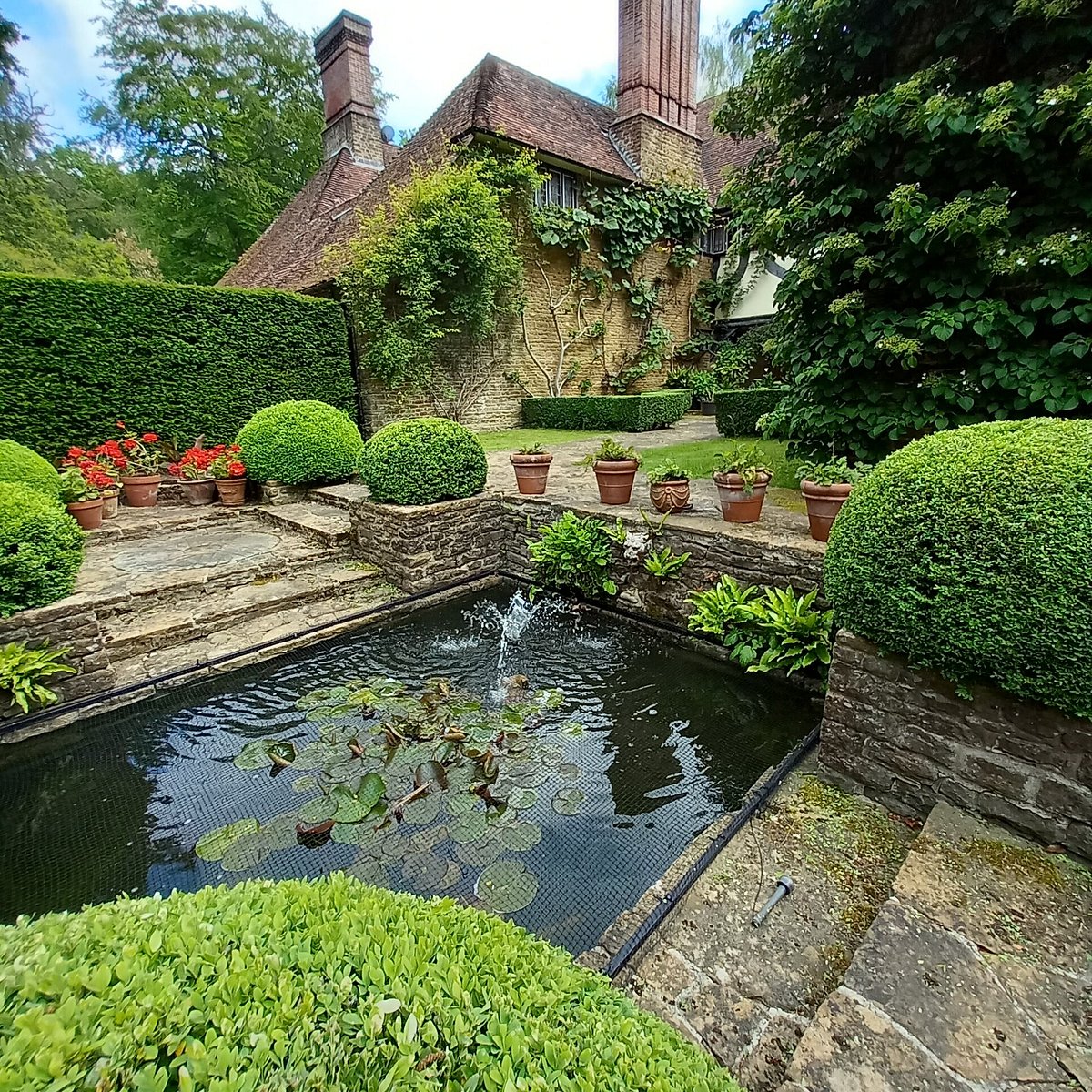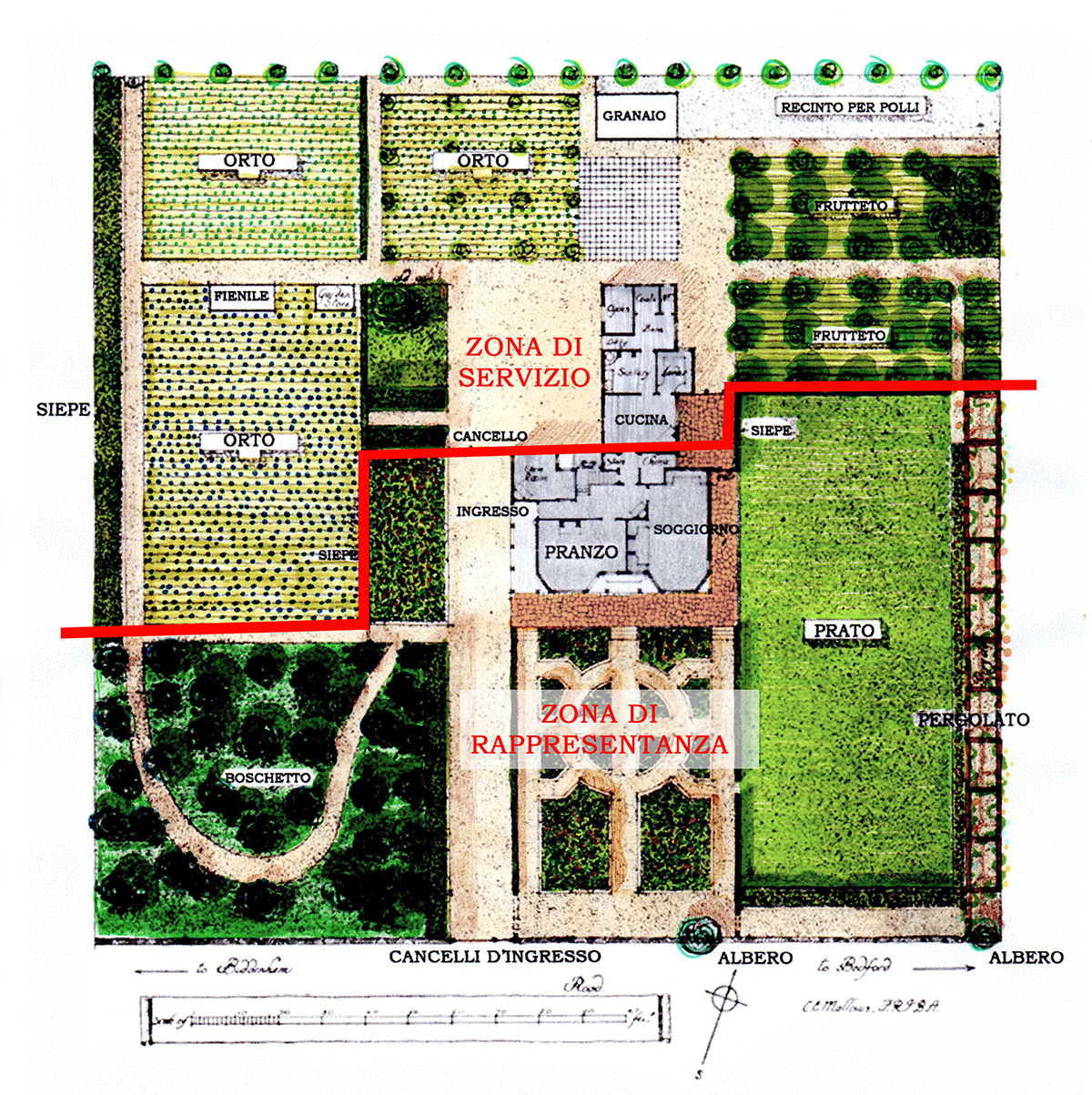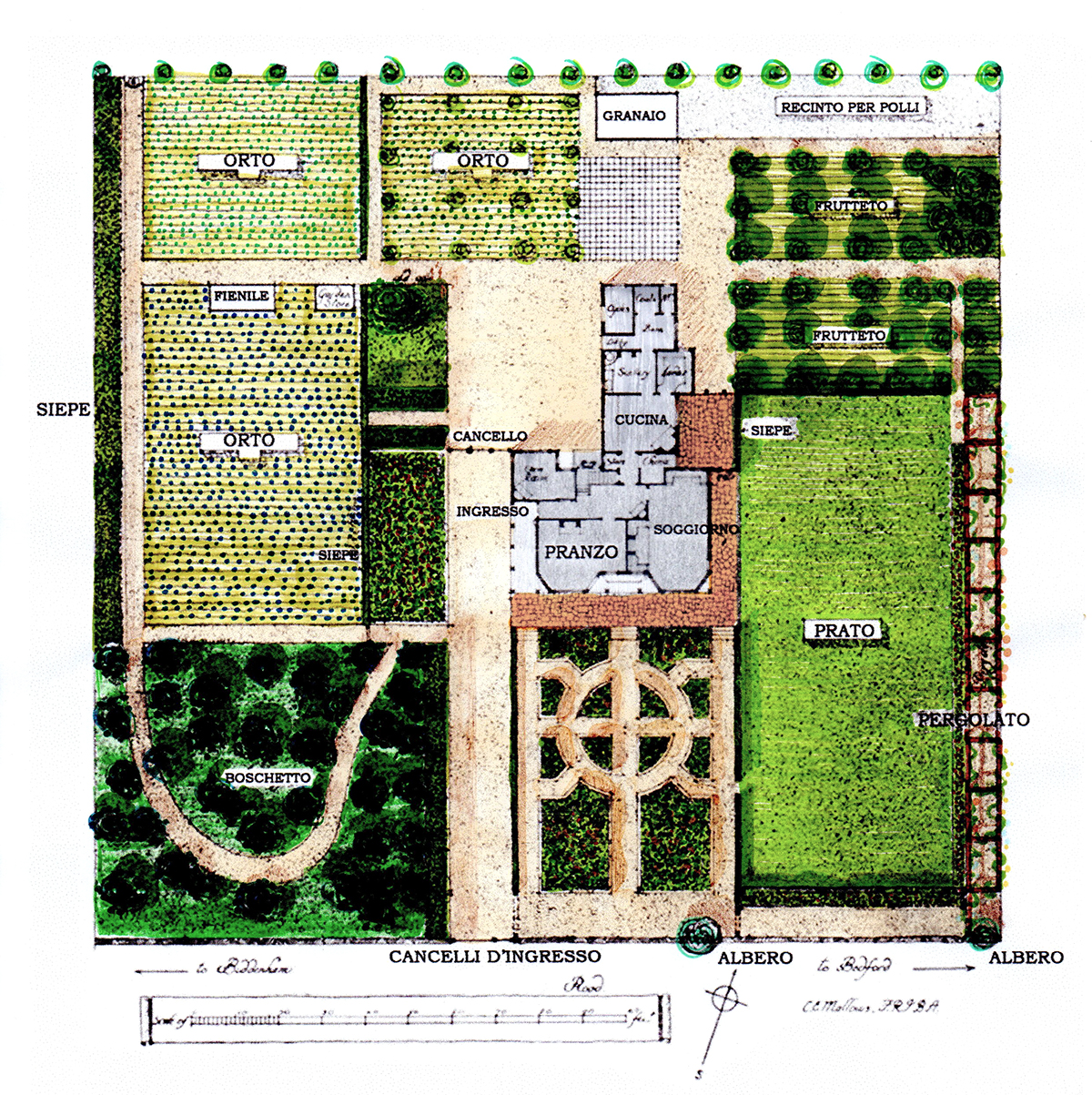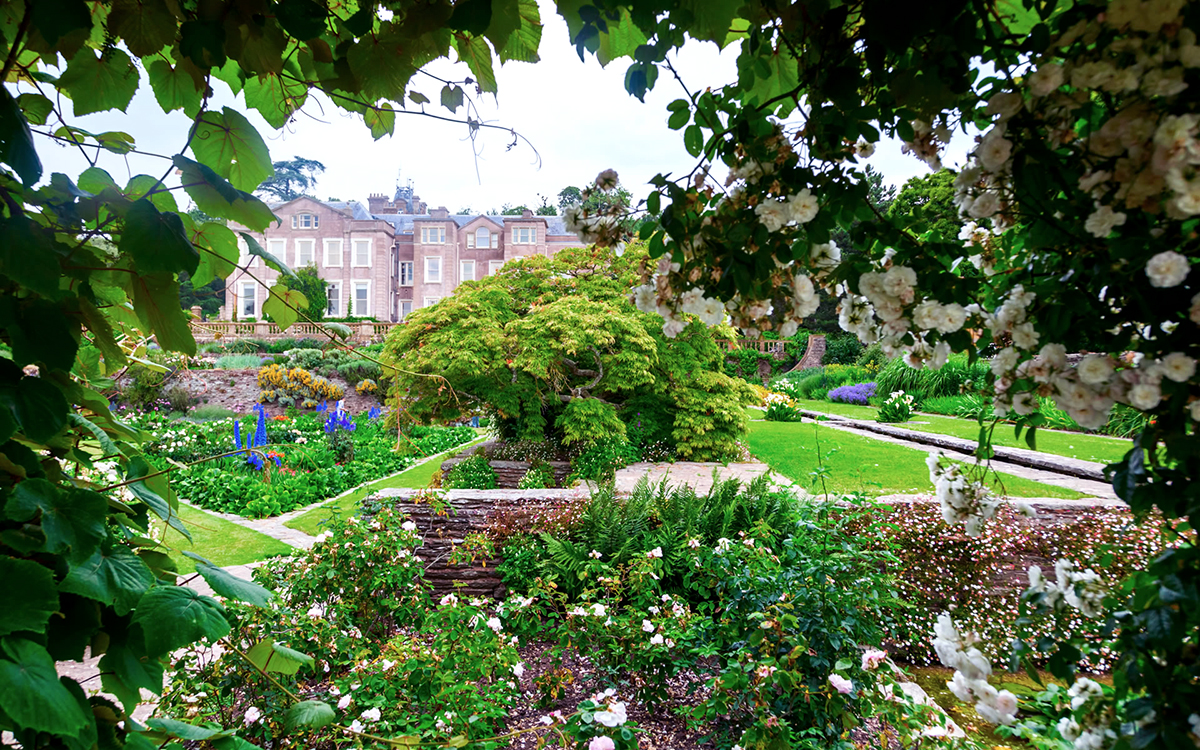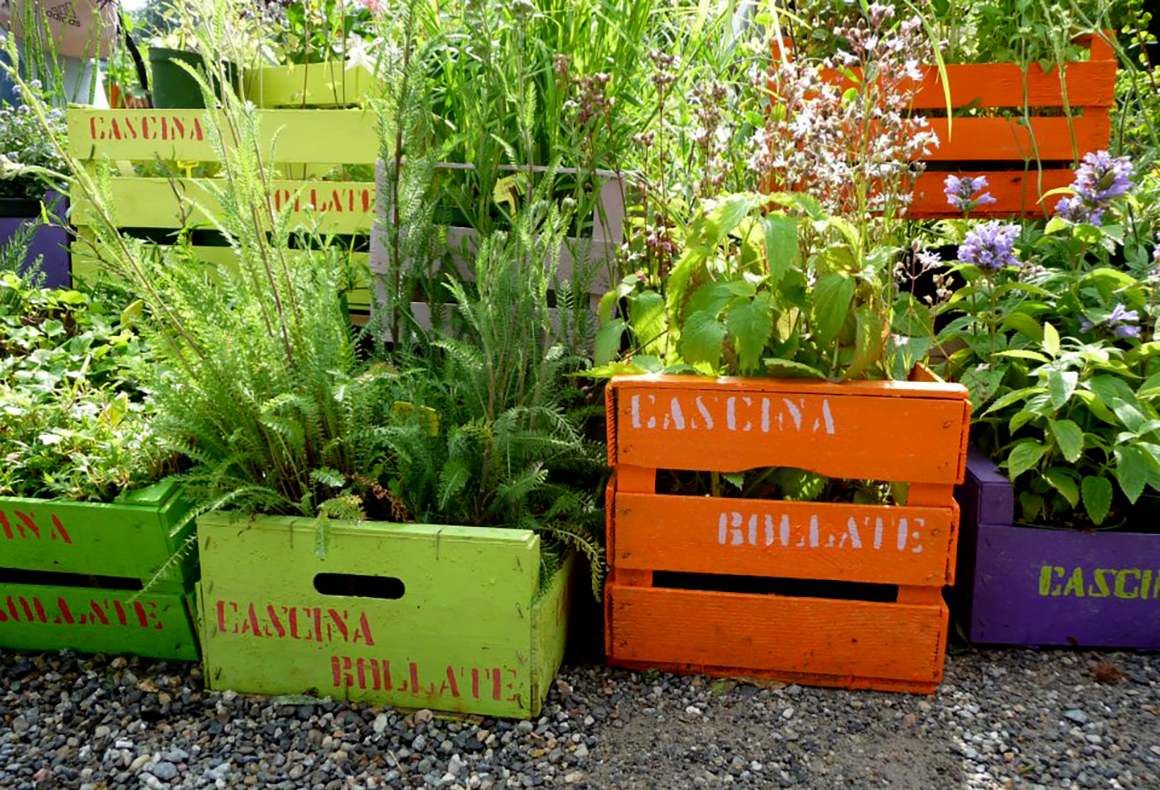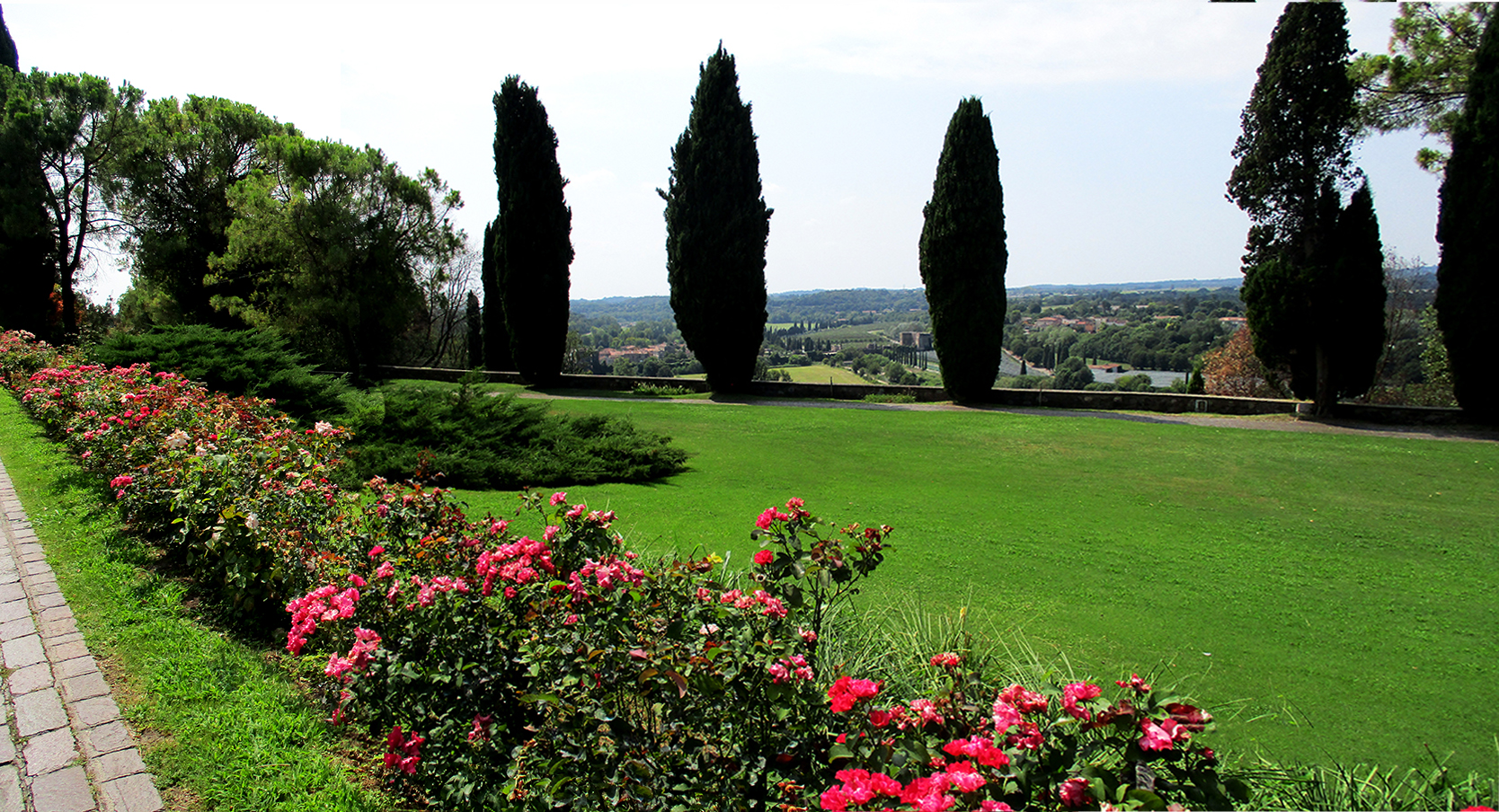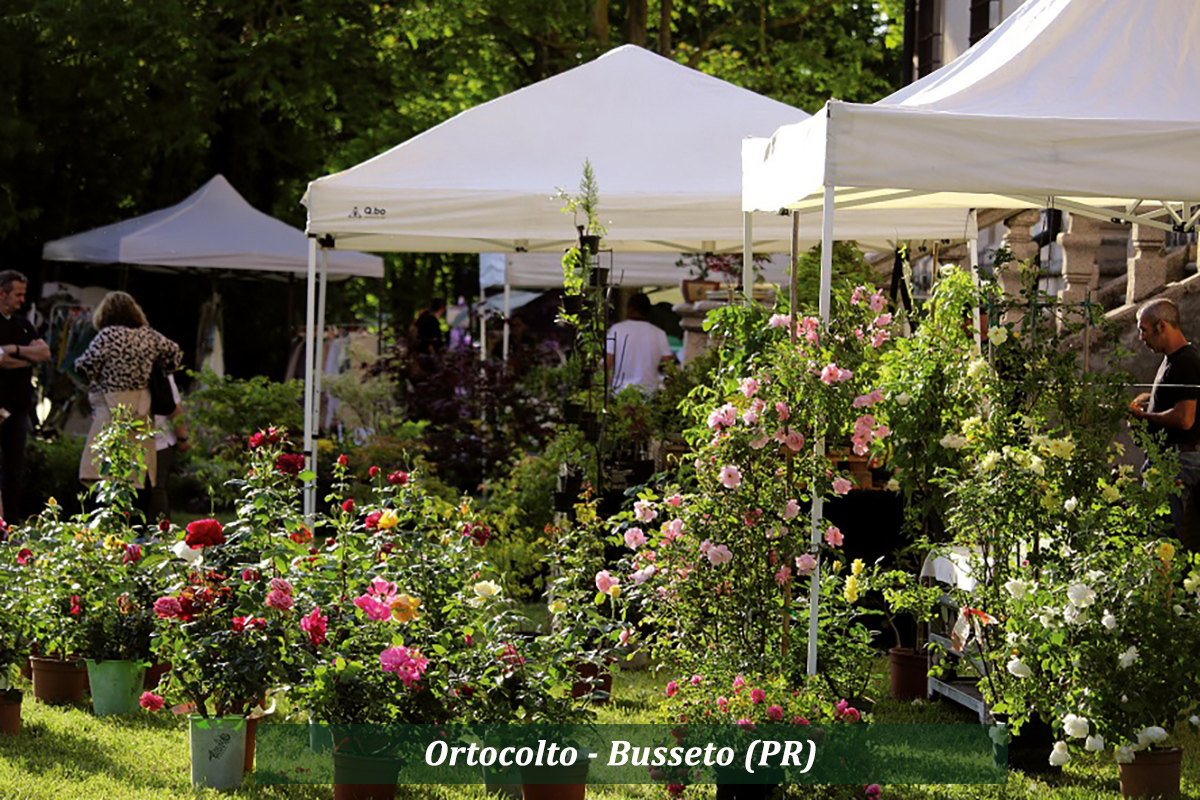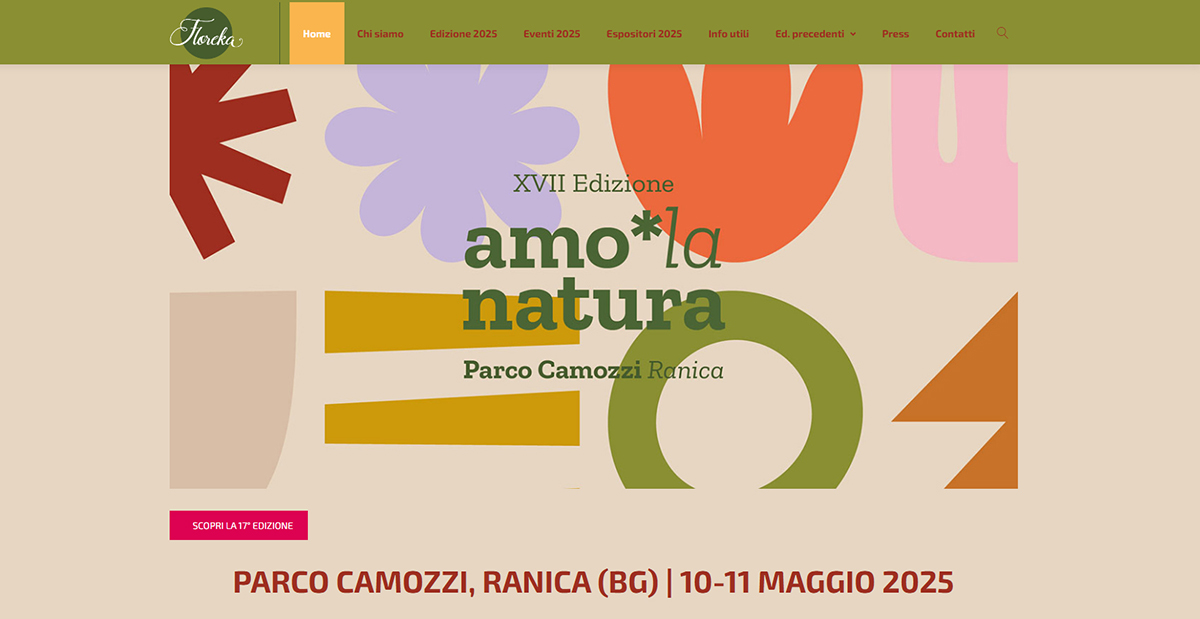This is the beginning of a series of articles inspired by the book “Gardens for Small Country Houses” by Gertrude Jekyll, a designer and gardener who revolutionized the way we think about gardens. This first part recounts her life, her artistic training, the influence of Arts and Crafts, and the importance of the connection between home and garden. It’s all enriched with images, reflections, and suggestions that are still applicable today.
GARDENS FOR SMALL COUNTRY HOUSES
GARDENS FOR SMALL COUNTRY HOUSES
PART 1: The Relationship Between Garden and Home – The Importance of Preserving or Creating Character – Hillside Gardens
Let’s start by introducing Gertrude Jekyll. She was born in 1843 in London to a wealthy family of seven children. Her brother Walter was a friend of Robert Louis Stevenson, author of The Strange Case of Dr. Jekyll and Mr. Hyde: it’s easy to understand where she took her surname from.
Who was Gertrude Jekyll?
When Gertrude was five, her family moved to the countryside, where she grew up happily and discovered her passion for plants early on. She also acquired other skills early on, as her father, a soldier in the Grenadier Guards who was in poor health, stayed home early and devoted himself and his children to his hobbies, including science, music, and crafts.
However, she did not lack the opportunity to play with friends and siblings in the large garden, which also included a playhouse built specifically for them, complete with a kitchen that Gertrude managed to burn down, much to her parents’ delight. She even dedicated a book to children’s gardens (Children and Gardens – Country Life 1908).
When Gertrude enrolled at the South Kensington School of Art in London at the age of 18, she was already a skilled painter and learned botany, anatomy, optics and the science of colour without ever abandoning the scientific approach she had learned from her father.
The encounter with the Arts and Crafts movement
At that school, he met and grew up with figures like John Ruskin and William Morris, founders of the Arts and Crafts movement, an English movement that aimed to reevaluate craftsmanship and the applied arts in response to industrialization and mass production, promoting beauty, functionality, and the value of manual labor and harmony with nature. In Italy, an example of a self-sufficient village inspired by the Arts and Crafts movement is Grazzano Visconti in the province of Piacenza. You can find all the information about this story in the article “Verde Grazzano.”
At 33, she returned home following her father’s death, designing and building the garden, which turned out so well that she began receiving visitors to see it.
Before her, the garden had followed a single formal, geometric style. The only decorations were the intricate topiary pruning of some evergreens and the flowerbeds known as Knot Gardens. Nothing else characterized the green space—laid out like a classic English park—least of all, flowers.
Love for nature
Gertude, on the other hand, loved flowers, and in her books she often describes the bending of a leaf or the color of a bush at sunset, or how the shapes and colors of two plants juxtapose beautifully at the bottom of the forest. Her infinite and constant amazement at the behavior of nature and plants is clearly evident.
She started her apprenticeship as a gardener as a child and, through her studies, she was able to access the next level of intervention in the garden: that of design.
We can therefore say that Jekyll is a complete professional, both gardener and designer. She knows the “living material” she works with well and also how to organize it with the help of paving, stairs, walls, fences, and everything else that can architecturally serve the garden, allowing it to be used comfortably and safely.
If you want to delve further you will find interesting things here
Gardens for small country houses
The book “Gardens for small country houses” begins like this
IT is upon the right relation of the garden to the house that its value and the enjoyment that is to be derived from it will largely depend.
Gertrude Jekyll begins with a sentence that alone opens up a whole new world for us. The relationship between home and garden is as important as it is overlooked by owners of green spaces. They let themselves be discouraged by the work to be done, viewing the garden merely as a source of work, when the choices made allow for the creation of a “comfort zone” for each individual. For example, don’t want to mow the lawn? You could opt for a flowerbed or a robot.
The connection must be intimate, and the access not only convenient but inviting.
Another concept that sparks the imagination and opens the door to memories. When we bought our dream house with a garden, we had dreams, images of ourselves spending our free time in the garden doing things we couldn’t do before. Some wanted to sleep in a hammock. Others wanted to have big barbecues with friends. And then something went wrong. What stopped us? Well, together with Gertrude Jekyll, we want to remove that obstacle, allowing you to achieve your initial goal.
Paolo Pejrone, to whom we dedicated an article that you can find by clicking on his name, took great inspiration from this for his projects and for Bramafam, his home in Ravello.
[…] It is also desirable to have one wide, easy terrace on the sunny side. The plan and sketch (see the plan on the right) show a clever treatment by Mr. C. E. Mallows of a rectangular space of about an acre. The house is near the middle an advantage on a small plot;
it is well bounded laterally by a pergola, walled on its outer side to the east, and by an evergreen hedge, thick and high, to the west. A small loggia is notched into the house itself we are in the house and yet in the garden a step down leads to a comfortable space of terrace; four more steps go directly into the garden. There is a fairly large lawn, a winding walk through a home spinney, and the rest is kitchen garden.
Considerations from Mondo del Giardino
We’d like to point out a few important points. There’s a clear distinction between the reception area and the service area, physically separated by a gate, a fence, and hedges. Areas such as the vegetable garden, which Jekyll calls the Kitchen Garden, the orchard, and the chicken coop are not intended to be visible to guests. For cultural reasons, we emphasize that, even in the house’s floor plan, the service areas, those around the kitchen, are located at the rear of the building and are connected to the “Kitchen Garden.”
If you wish, you can purchase the Italian version of Gertrude Jekyll’s book “Gardens for Small Country Houses,” a timeless classic for every garden enthusiast
The mondo del giardino advice
Drawing a parallel with the modern garden, we could say that if you plan to plant a vegetable garden, you should visually separate it from the area frequented by your guests with a hedge, varying in height depending on the sun’s rays, or with a flowerbed. Alternatively, you could create a mixed flower garden that’s as pleasing to the eye as it is to eat.
Now, let’s get to work! Our wonderful new outdoor space is about to be born!
GOOD WORK and…if you have any questions, please write to info@mondodelgiardino.com
Image sources: Many thanks in order to propertylistings.ft.com, marymiller.substack.com and Country Life Picture Library, Country Life for the images from the book Children and gardens (1908), gertrudejekyll.co.uk, tripadvisor.com, pinterest, beforeyougarden.com, Fabio Tracogna for the flower meadow, ecodelchisone.it, Andrea Jones of countrylife.co.uk, graduatelandscapes.co.uk.


